Even though the science-fiction writers’ visions for the automotive industry didn’t come to life, we are definitely on track for revolution. Our cars are not flying yet (or else, not these in regular use), but they can navigate themselves without our intervention and use renewable sources as fuel. What will the future look like in the automotive sector? The startups we gathered in today’s ranking are setting a tone for the further expansion of the industry, solving problems that have been sabotaging its growth.
With artificial intelligence development, the automotive industry is thriving, being able to improve its autonomous vehicle (AV) solutions for better accuracy and safety. In recent years, we have seen a wave of AVs for personal use, collective transport, and logistics. An idea to put the driving in AI’s hands, which seemed unimaginable just a decade ago, is now settling with us, putting up the foundations for the new era. Safer one? Very possibly, considering the recent developments on the models applied for AV, which you can read about below.
With the autonomous revolution comes the focus on renewable energy, present across industries and particularly in automotive. Electric vehicles are becoming a norm, and soon, we may all drive cars that do not even require charging. With opportunities come challenges – like battery-related issues, demand for minerals, and security concerns. Check how these automotive startups tackle them!
#1 Minus Zero
Year founded: 2021
Financing: $1.7 M
Sector: Automotive
Applications: Autonomous Vehicles
Mission: Making autonomous driving safer in challenging traffic
The main challenge for the developers that work on AI models for autonomous vehicle? Grasping the meanders of human behaviours. They are extremely hard to predict, and doing it right is a key condition for the passengers’ safety. The traffic regulations help, but what if the drivers only treat them as suggestions? The Bengaluru-based startup Minus Zero decided to solve that dilemma once and for all. The chaotic specifics of the Bengaluru traffic, where the vehicles often come at you from all sides, paradoxically helped them to create a more effective model for autonomous driving that will prove itself safe in any conditions.
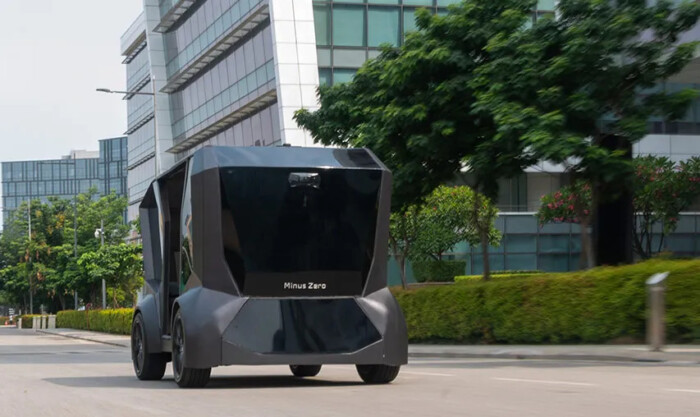
How come? Minus Zero took a different approach than most automotive companies, creating its AI model in a more human-like manner. That means instead of analysing the detailed data, it focuses on the relationship between the specific data points to identify the cause and effect and predict future risks based on these insights.
Minus Zero’s nature-inspired AI-powered zPod is India’s first autonomous vehicle and the first AV in general to tackle particular traffic in the region. While solving the safety issue, Minus Zero also helps to reduce fuel expenses. As they claim on their website, “a city like Bengaluru wastes 250,000 litres of fuel per hour every day while being stuck in traffic”. The electric vehicles powered with their optimised model handle these challenging conditions, bringing back millions of Rp back to the city budget.
#2 BusUp
Year founded: 2016
Financing: $15.5 M
Sector: Automotive
Applications: Bus sharing
Mission: Reducing the carbon footprint of corporate mobility
In larger cities, corporate mobility is a permanent element of the traffic and, thus, one of the contributors to the overall emissions from the transport sector. At the same time, its users often struggle with the lack of flexibility, having to commute to reach the predefined collection point. The buses often run half empty, but as they carry out a corporate route, they are not part of a public transport grid. That means unnecessary costs and CO2 emissions.
BusUp came up with a solution that solves these issues, providing companies with a bus-sharing platform aiming to optimise corporate mobility. Using it, they can access bus routes adjusted to their needs – from exclusive through shared to door-to-door. Instead of paying for their own shuttle, they can use a shared one, avoiding empty miles and spending less. Born in Barcelona in 2016, the automotive industry startup is already streamlining corporate mobility in San Francisco and other big agglomerations in the world. Although aimed at employee transport, it’s also a perfect solution for the tourism sector, as the Marriott case study proves.
Considering the new Fit for 55 norms for EU companies, which will make the emission rights pool shrink at a faster pace and enforce detailed reporting on carbon print, more European companies will likely reach out for BusUp’s solution in the following years.
#3 OrcaAI
Year founded: 2018
Financing: $15.6 M
Sector: Automotive
Applications: Marine traffic
Mission: Using AI to make maritime traffic safer
eCommerce has boomed with the pandemic, and once the restrictions were lifted, marine traffic received a significant boost after the Covid-19 drop. The 2021 Suez Canal obstruction has shown us how easily the main freight routes can get congested, causing delays and chaos. OrcaAI jumped on the wave of the demand for better marine navigation tools, launching its AI-based collision avoidance system on the market.
The solution brought up by the Israeli automotive startup helps freight forwarders navigate the waters safely in challenging conditions. Drawing insights from the real-time data from multiple sources, their SeaPod provides the most accurate guidelines to avoid collisions and congested traffic. Although designed for maritime freight, it can also serve cruisers and individual users for the purpose of enhancing safety in often congested areas.
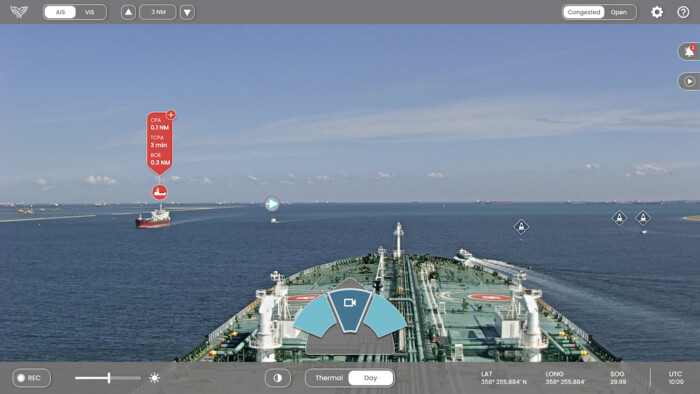
#4 Ghost Autonomy
Year founded: 2017
Financing: $ 207 M
Sector: Automotive
Applications: Autonomous vehicles
Mission: Providing a safe autonomous driving solution for challenging conditions
Most of today’s autonomous vehicle achievements stem from one specific event – the DARPA Grand Challenge. Sponsored by the Defense Advanced Research Projects Agency, this military-oriented competition has been fuelling AV research since 2004. It also gave foundations for various today’s automotive startups. There’s one issue with it – set for a controlled environment, these projects would take on a complex approach that would require the model to identify every single obstacle it met on its way. In harsh conditions, on a low-lit road, or in pouring rain, when the visibility is strongly affected, such a solution simply doesn’t work.
Ghost Autonomy, which aims to facilitate autonomous driving in challenging environments, has a different, simpler take on artificial intelligence. The USA-based automotive industry startup provides consumer cars with AI-powered software powered by its KineticFlow™ neural network that replaces image-based object recognition with properties recognition. In simpler words – instead of identifying the object itself, it recognizes its features. It’s enough to make informed decisions on every mile, safely bringing the passenger or load to the final destination. Such an approach not only improves the efficiency of the predictions in varying conditions but also cuts their cost.
#5 Lightyear
Year founded: 2017
Financing: $ 168.4 M
Sector: Automotive
Applications: Solar cars
Mission: Delivering a first grid-independent vehicle powered by the solar energy
With electric cars, we switched from gas stations to EV charging stations. They are more sustainable, but they still do not provide us with full flexibility. Will we ever be capable of driving our cars without recharging them at all? Lightyear, a visionary automotive industry startup, wants to prove that we can achieve that using the most widely available, democratic, and renewable fuel on Earth – sunlight. With its capability to draw energy from the sun, Lightyear’s car seems like an electric vehicle of the future that could blow up the automotive industry.
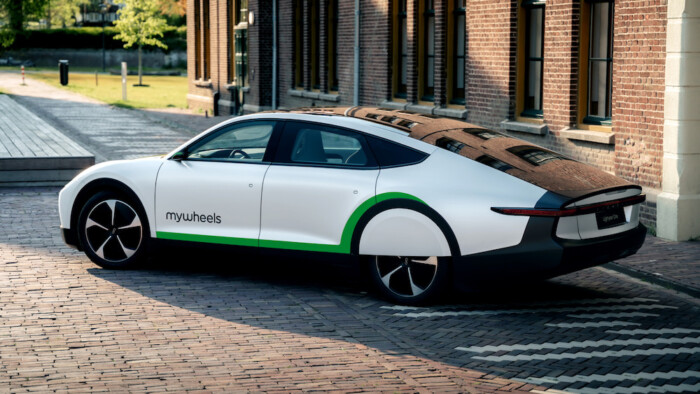
Although not entirely independent of the grid, the exposure to the sun can top up Lightyear car’s battery between the plug-ins (even as rare as every few months!). This way, the startup beats one of the most significant barriers of entry for customers who are considering switching to electric. The dependency on the charging infrastructure, which is still very limited in many areas. With its solar bonnet and roof, Lightyear’s car absorbs the sunlight with the majority of its surface. Thus, it brings us closer to the dream about the perpetuum mobile. Is it too good to be true? Considering the $ 168.4 M funding the company has already gathered and a long waiting list for the v2 of their vehicle, we would disagree!
#6 Venti Technologies
Year founded: 2018
Financing: $36.8M
Sector: Automotive
Applications: Autonomous logistics
Mission: Streamlining logistics operation with a complex and flexible AI-driven approach
So far, we have been focusing on the vehicles themselves. Now it’s time for an even more complex automotive startup niche – autonomous logistics. Artificial intelligence has already changed the face of logistics as we know it. It automates both the on-site and back-office operations to maximise profit and reduce carbon imprint. Venti Technologies brings the latest advancement in this field together. It provides carriers and logistics hubs with a comprehensive AI-powered system for moving goods and people.
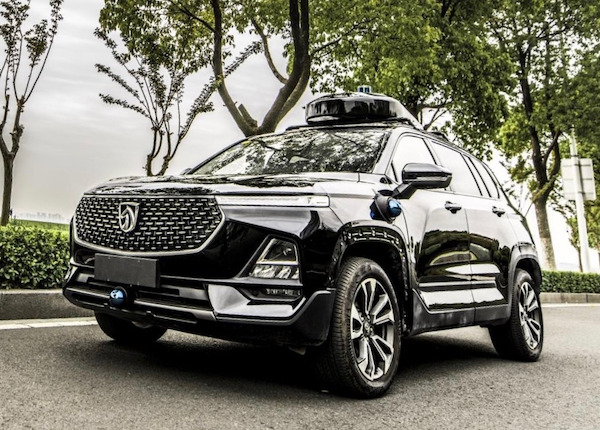
Whether it is a port, airport, warehouse, or factory, Venti Technologies software can maximise the efficiency of its operations through automation, an advanced fleet management system, and integrated engineering. Using its features, they can avoid empty miles, and traffic congestion and optimise the containers’ loading to make it as sustainable as possible. The automotive industry startup stands out on the market with its flexibility, capable of integrating its solution with almost any vehicle, leaving its customers an option to stay with their own equipment instead of doing additional investments.
#7 Weev
Year founded: 2017
Financing: £50M
Sector: Automotive
Applications: EV charging infrastructure
Mission: Facilitating the mass adoption of electric vehicles through the expansion of the EV charging infrastructure
As we have already mentioned, the limited charging infrastructure is one of the main barriers to the mass adoption of electric vehicles. Customers worry they will be tied to the routes where the EV stations are more common and that they will have to significantly change their driving habits. Companies like Weev can make these fears go once and for all, paving the path for electric vehicles to conquer and dominate our streets.
The British automotive industry startup builds the EV charging infrastructure in an end-to-end model, cooperating with individual companies, and municipal and regional authorities to bring us one step closer to a zero net future. The portfolio of Weev consists of public, corporate, and domestic projects. They provide hardware, cloud services, and support, making EV charging grid expansion easier than ever.
#8 UVeye
Year founded: 2016
Financing: £195 M
Sector: Automotive
Applications: automated vehicle inspection
Mission: Increasing safety with a ready to use inspection tool
Our cars are already driven by robots, so why wouldn’t we put the vehicle inspection into their hands, too? As a repetitive, detailed, and error-prone process, it seems just perfect to be handled by artificial intelligence. UVeye has noticed AI’s potential in that respect and decided to turn it into a robust product. The USA-based automotive startup provides a portfolio of products linked with software that enables quick but thorough inspection.
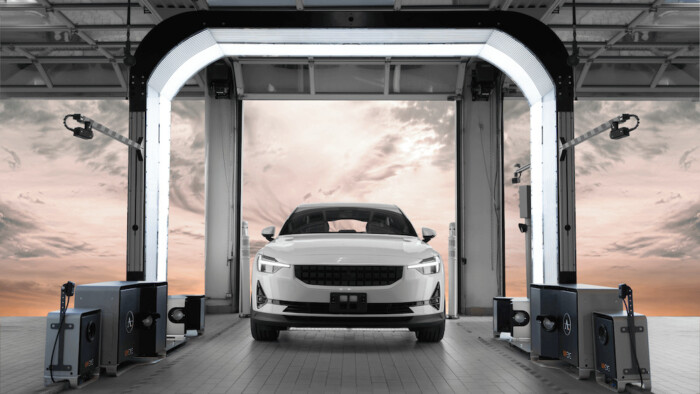
UVeye’s solution proves itself useful in various places, whether it’s a factory, an inspection unit, or a car dealer. It allows them to become more independent and increase both safety and service quality. They can reach out for a broad portfolio of devices, from underbody scanners through exterior scanners to wheel and tire automated inspection systems. Paired with robust machine learning algorithms, these devices detect mechanical and safety issues in a short time. And the user can see them all listed and described in a detailed report.
#9 Fernride
Year founded: 2019
Financing: €38.2M
Sector: Automotive
Applications: autonomous trucking
Mission: Solving labour shortage and high carbon imprint problem in the logistics industry with a single solution
Although the logistics sector in Europe is in crisis at the moment, the shortage of truck drivers remains high. At the same time, fuel prices are fluctuating, making it harder for logistics companies. Logistics companies still rely mainly on diesel, to maintain financial liquidity and plan new investments. Fernride allows them to bake their cake and eat it, solving these two issues with one service.
As a first on the market, the German automotive startup provides autonomous electric trucking, contributing to the broader adoption of EVs in the logistics sector. Supervised by humans, its technology brings the carriers closer to the net-zero goal. Fernride’s vehicles are already present in factories, ports, transportation hubs, and even on the road. Considering the current labour shortage and the growing demand for logistics support in the e-commerce sector, there’s definitely an issue to solve. And Fernride is doing it right!
The logistics sector is adopting electric vehicles at a much slower pace than personal and public transport (mainly due to power and infrastructure limitations). Now that the Fit for 55 new regulations put stricter obligations on the EU companies across sectors, the interest in electric trucking will likely shift, so we may see Fernride thrive! Considering the automotive startup’s partner list that includes such giants as Volkswagen Group Logistics, DB Schenker, HHLA, or BSH, the founders of Fernride can rest easy.
#10 Jetson
Year founded: 2017
Financing: $10 M
Sector: automotive
Applications: EVTOL
Mission: changing the way we travel with a personal flying vehicle
We have mentioned the mythical flying cars at the beginning of our article. We’ll close it with the startup that brings this vision to life! As befits a visionary, Jetson took its name from the famous cartoon that predicted a number of technologies in broad use today. Pioneering in its field, Jetson is developing a personal electric aerial vehicle. The vehicle would open the skies for personal users without compromising safety. So far, you can fly Jetson without the pilot’s licence only in the United States, but the regulations will likely change in the automotive industry startup’s favour with the expansion of the EVTOL market.
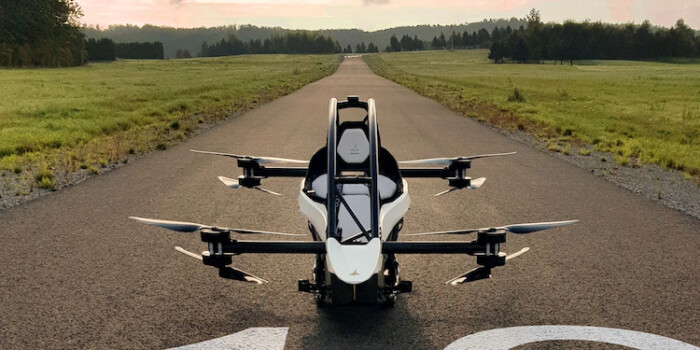
Jetson’s beginnings date back to 2017 when the high-performance car entrepreneur Peter Ternstrom and drone specialist Tomasz Patan joined forces to create the first affordable EVTOL on the market. Inspired by racing cars, Jetson ONE borrows the construction of the safety cell from them. And that’s just one of its many safety features. Lidar sensor-driven auto landing system enables the user to reach their destination safely without any prior flying experience.
Jetson’s project quickly gained massive market attention, and the hype is not going away! Will we soon commute to work with these elegant personal flying cars? It’s very likely, considering their accessibility and friendly price ($92 000 at this point).
What the future holds for automotive startups
Looking at the projects we have gathered in our ranking, one thing immediately comes to mind. No successful automotive startup of the future will ignore the environmental aspects. The joined efforts of the industry innovators all shift towards lower carbon imprint and sustainability. That’s understandable from the regulatory point of view, as the laws will be becoming increasingly strict on CO2 emitters. But also, it seems like a natural course of events in economic terms, considering that the accessibility of fossil fuels is decreasing.
Automotive industry startups and the main issue with electric vehicles
As we are experiencing the transition from fossil fuels to electricity, one issue emerges, sabotaging the pro-environmental image of EVs. The battery struggle is real. Thus, it may (or should) become a main focus point for innovators in the automotive field in the near future. The demand for batteries fuels the exploration of lithium and silicon. Therefore, it affects protected areas and meets resistance from local communities (just think of Portuguese Barroso or Serbian Jadar project).
At the same time, the EV batteries are not designed for mass recycling. With the mass adoption of electric transport, we need to invent ways to recycle them more effectively. That’s a crucial puzzle for the automotive industry startups to solve in the following years. Or otherwise, we will be flooded by used batteries that are harmful to the environment and problematic to store.
The future of automotive industry startups
There’s another elephant in the room that needs to be addressed – the explosion risk. The fire incidents in the EV draw public attention, but at this point, they are relatively rare. However, with mass adoption on the horizon, this issue definitely needs to be solved, creating another area for automotive industry startups to thrive. Preventive systems should be a core focus since battery-related incidents can be really challenging to handle (take the recent fire on the Dutch ship transporting electric vehicles).
The current revolution has already brought us various automotive inventions, but there is a lot to be done as a result. If you have an idea that could contribute to the further development of the automotive sector, how about discussing it with us? As Miquido, we can help you on the design and development side, helping you bring your vision to life. Having worked with numerous startups, we developed a startup bootcamp that allows you to finish the Proof of Concept within just one month.

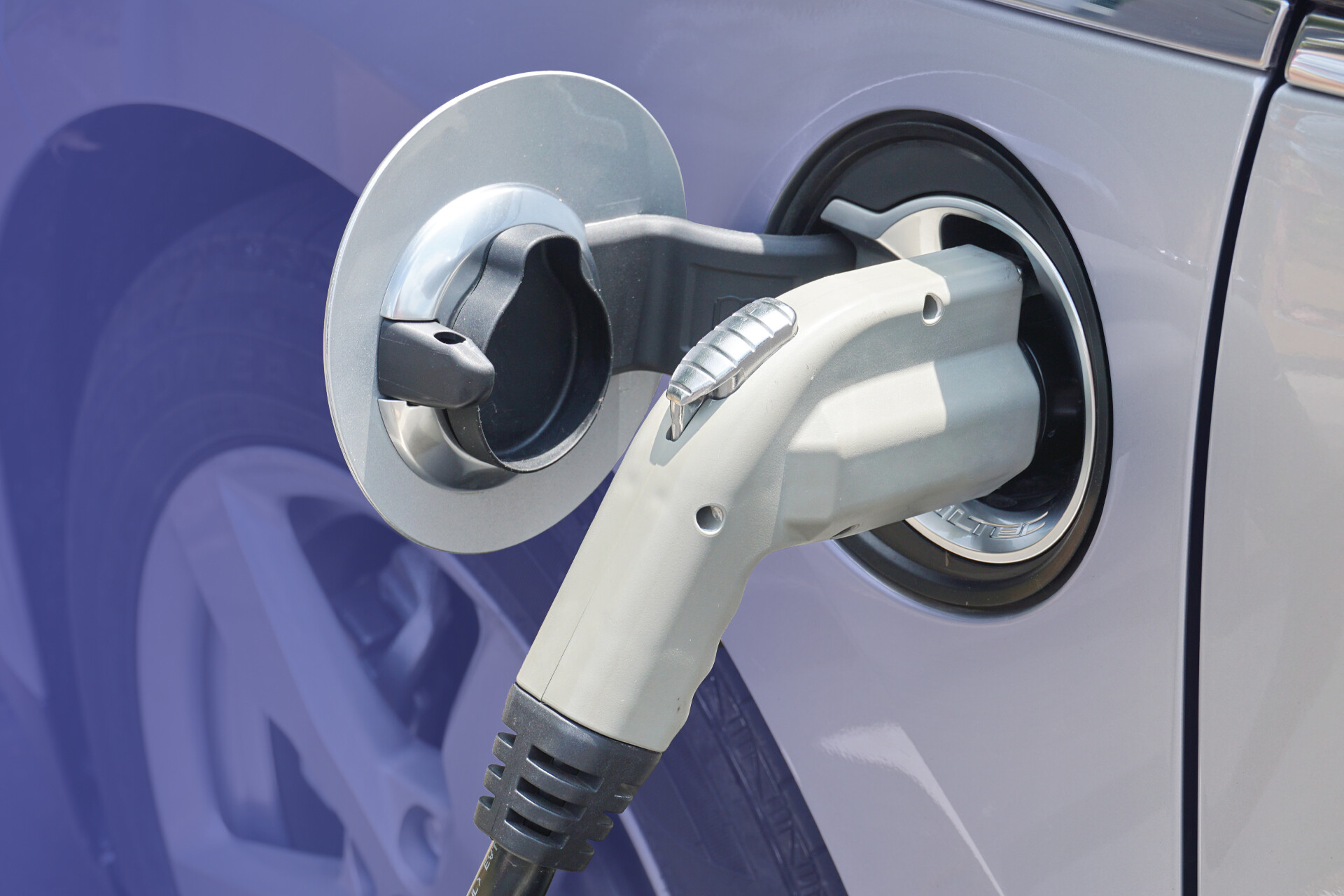



![[header] startup product strategy unlocking growth opportunities for series a startups](https://www.miquido.com/wp-content/uploads/2023/06/header-startup-product-strategy_-unlocking-growth-opportunities-for-series-a-startups-432x288.jpg)



